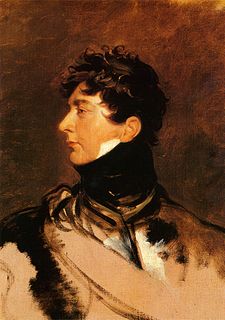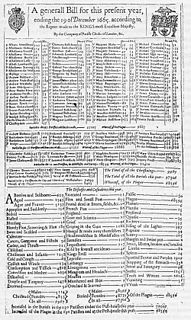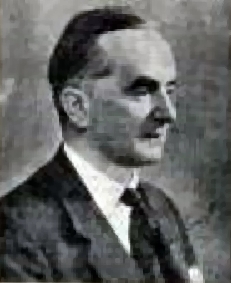Related Research Articles

Charles John Huffam Dickens was an English writer and social critic. He created some of the world's best-known fictional characters and is regarded by many as the greatest novelist of the Victorian era. His works enjoyed unprecedented popularity during his lifetime and, by the 20th century, critics and scholars had recognised him as a literary genius. His novels and short stories are widely read today.

The Regency era in the United Kingdom of Great Britain and Ireland was a period towards the end of the Georgian era, when King George III was deemed unfit to rule due to his illness and his son ruled as his proxy, as prince regent. Upon George III's death in 1820, the prince regent became King George IV. The terms Regency or Regency era can refer to various periods of time; some are longer than the decade of the formal Regency from 1811 to 1820. The period from 1795 to 1837, which includes the latter part of George III's reign and the reigns of his sons George IV and William IV, is sometimes regarded as the Regency era, characterised by distinctive trends in British architecture, literature, fashions, politics, and culture.
The British Science Association (BSA) is a charity and learned society founded in 1831 to aid in the promotion and development of science. Until 2009 it was known as the British Association for the Advancement of Science (BA). The current Chief Executive is Katherine Mathieson. The BSA's mission is to get more people engaged in the field of science by coordinating, delivering, and overseeing different projects that are suited to achieve these goals. The BSA "envisions a society in which a diverse group of people can learn and apply the sciences in which they learn." and is managed by a professional staff located at their Head Office in the Wellcome Wolfson Building. The BSA offers a wide variety of activities and events that both recognize and encourage people to be involved in science. These include the British Science Festival, British Science Week, the CREST Awards, Huxley Summit, Media Fellowships Scheme, along with regional and local events.
The Morning Chronicle was a newspaper founded in 1769 in London and published under various owners until 1862, when its publication was suspended, with two subsequent attempts at continued publication. From 28 June 1769 to March 1789 it was published under the name The Morning Chronicle, and London Advertiser. From 1789 to its final publication in 1865, it was published under the name The Morning Chronicle. It was notable for having been the first steady employer of essayist William Hazlitt as a political reporter, and the first steady employer of Charles Dickens as a journalist; the first newspaper to employ a salaried woman journalist Eliza Lynn Linton; for publishing the articles by Henry Mayhew that were collected and published in book format in 1851 as London Labour and the London Poor; and for publishing other major writers, such as John Stuart Mill.

Bills of mortality were the weekly mortality statistics in London, designed to monitor burials from 1592 to 1595 and then continuously from 1603. The responsibility to produce the statistics was chartered in 1611 to the Worshipful Company of Parish Clerks. The bills covered an area that started to expand as London grew from the City of London, before reaching its maximum extent in 1636. New parishes were then only added where ancient parishes within the area were divided. Factors such as the use of suburban cemeteries outside the area, the exemption of extra-parochial places within the area, the wider growth of the metropolis, and that they recorded burials rather than deaths, rendered their data incomplete. Production of the bills went into decline from 1819 as parishes ceased to provide returns, with the last surviving weekly bill dating from 1858. They were superseded by the weekly returns of the Registrar General from 1840, taking in further parishes until 1847. This area became the district of the Metropolitan Board of Works in 1855, the County of London in 1889 and Inner London in 1965.

Col Alexander Ross Clarke FRS FRSE (1828–1914) was a British geodesist, primarily remembered for his calculation of the Principal Triangulation of Britain (1858), the calculation of the Figure of the Earth and one of the most important text books of Geodesy (1880). He was an officer of the Royal Engineers employed on the Ordnance Survey.

John Britton was an English antiquary, topographer, author and editor. He was a prolific populariser of the work of others, rather than an undertaker of original research. He is remembered as co-author of nine volumes in the series The Beauties of England and Wales (1801–1814); and as sole author of the Architectural Antiquities of Great Britain and Cathedral Antiquities of England.
Sudbury was a parliamentary constituency which was represented in the House of Commons of the Parliament of the United Kingdom.

West Surrey was a parliamentary constituency in the county of Surrey, which returned two Members of Parliament (MPs) to the House of Commons of the Parliament of the United Kingdom, elected by the bloc vote system.

Sir John Braddick Monckton FSA was a British lawyer and civil servant, then Town Clerk of London for 30 years until his death. He was elected Town Clerk of London after the death of Frederick Woodthorpe on 17 July 1873 and served until 3 February 1902, his death date. The "Remembrancer" officiated during vacancy until the next Town Clerk was elected on 1 May 1902.
Joseph Grego was an art collector and exhibitor, author and journalist, inventor and graphics expert.
The Aborigines' Protection Society (APS) was an international human rights organisation founded in 1837, to ensure the health and well-being and the sovereign, legal and religious rights of the indigenous peoples while also promoting the civilisation of the indigenous people who were subjected under colonial powers, in particular the British Empire. In 1909 it merged with the British and Foreign Anti-Slavery Society (BFASS) to form the Anti-Slavery and Aborigines' Protection Society.

Robert William Buss was a Victorian artist, etcher and illustrator perhaps best known for his painting Dickens' Dream. He was the father of Frances Buss, a pioneer of girls' education.
The Star and Garter Hotel in Richmond was a hotel located in the London countryside on Richmond Hill overlooking the Thames Valley, on the site later occupied by the Royal Star and Garter Home, Richmond. The first establishment on the site, an inn built in 1738, was relatively small. This was followed by several other buildings of increasing size and varied design as the site changed from family ownership to being run by a limited company. Some of the rebuilding or extension work took place following fires that by 1888 had destroyed most of the original buildings. At various times architects were commissioned to build grand new buildings or extensions to take advantage of the famed view over the river and valley below, with the largest being the 1860s chateau block by E. M. Barry.
The Dexter Collection of Dickensiana is a special collection of materials by, about and associated with the novelist Charles Dickens, donated to the British Library by John Furber Dexter.
Frederick George Kitton was a British wood-engraver, author, and illustrator. He is best known for illustrating and editing the works of Charles Dickens.
Edwin Beresford Chancellor FRHS FSA was an English author known for his works on the history of London and it environs. He wrote his first book, Historical Richmond (1885), when only 17 years old. In 1924-25 he completed a six-volume history of The Lives of the Rakes.

Charles Kingston O'Mahony, who wrote as Charles Kingston, was an Irish journalist and author in England during the Golden Age of Detective Fiction of the 1920s and 30s. Many of his novels were set in London, including a seven book series featuring the fictional detective Chief Inspector Wake of Scotland Yard. His work has been described as more competent than cutting-edge, but showing a clear familiarity with the criminal underworld in London.
Madeline House was a British scholar of English literature, a specialist in the works of Charles Dickens, and known for her editorship of the Pilgrim edition of his letters. She was a winner of the British Academy's Rose Mary Crawshay Prize in 1965.
References
- ↑ "Search Results for England & Wales Births 1837-2006".
- ↑ "Search Results for England & Wales Deaths 1837-2007".
- ↑ "Death of Mr. John F. Dexter". The Times. London. 1927-06-21. p. 13 col. B(issue 44613).CS1 maint: postscript (link)
- ↑ Tillotson, Kathleen (May 1976). "Charles Dickens. The J.F. Dexter Collection". The Dickensian. 72 (379): 101–103.
- ↑ "Friend s of the National Libraries: Annual Report for 1969", Annual Report (Annual Report) (1969 ed.), London: Friends of the National Libraries, § "Acquisitions", p. 11, 1969, ISSN 1746-3270 — British Library Ac.1326..CS1 maint: postscript (link)
- ↑ British Library (2010-04-27). "D: Dickens". Named Collections of Printed Materials. British Library. Archived from the original on 2011-02-10. Retrieved 2011-06-04.
DEXTER, John Furber [1847-1917[sic]]. "The Dexter Collection of Dickensiana".